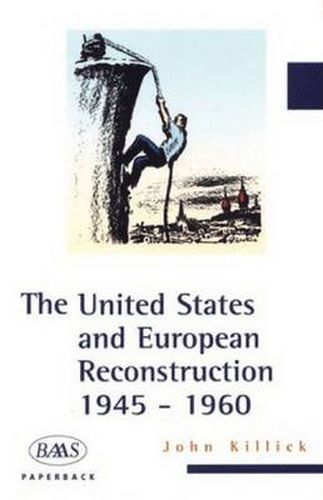Readings Newsletter
Become a Readings Member to make your shopping experience even easier.
Sign in or sign up for free!
You’re not far away from qualifying for FREE standard shipping within Australia
You’ve qualified for FREE standard shipping within Australia
The cart is loading…






In this work, the author introduces the reader to a key aspect of economic history: the impact of American intervention in Europe after World War II. Would Europe have revived spontaneously after 1945? Did American dollars save the world in 1947? Was US influence the underlying reason for the general drift away from socialism and the move towards European federalism in the late 1940s and early 1950s? If the Marshall Plan - in conjunction with NATO - created a coherent and prosperous western bloc, was this critical for the outcome of the Cold War? Did American policy in some way cause the substantial convergence since 1945 in trans-atlantic productivity, incomes and living styles, or was this convergence - and relative American economic decline - bound to happen anyway? These are some of the questions to which this analysis offers answers.
$9.00 standard shipping within Australia
FREE standard shipping within Australia for orders over $100.00
Express & International shipping calculated at checkout
In this work, the author introduces the reader to a key aspect of economic history: the impact of American intervention in Europe after World War II. Would Europe have revived spontaneously after 1945? Did American dollars save the world in 1947? Was US influence the underlying reason for the general drift away from socialism and the move towards European federalism in the late 1940s and early 1950s? If the Marshall Plan - in conjunction with NATO - created a coherent and prosperous western bloc, was this critical for the outcome of the Cold War? Did American policy in some way cause the substantial convergence since 1945 in trans-atlantic productivity, incomes and living styles, or was this convergence - and relative American economic decline - bound to happen anyway? These are some of the questions to which this analysis offers answers.